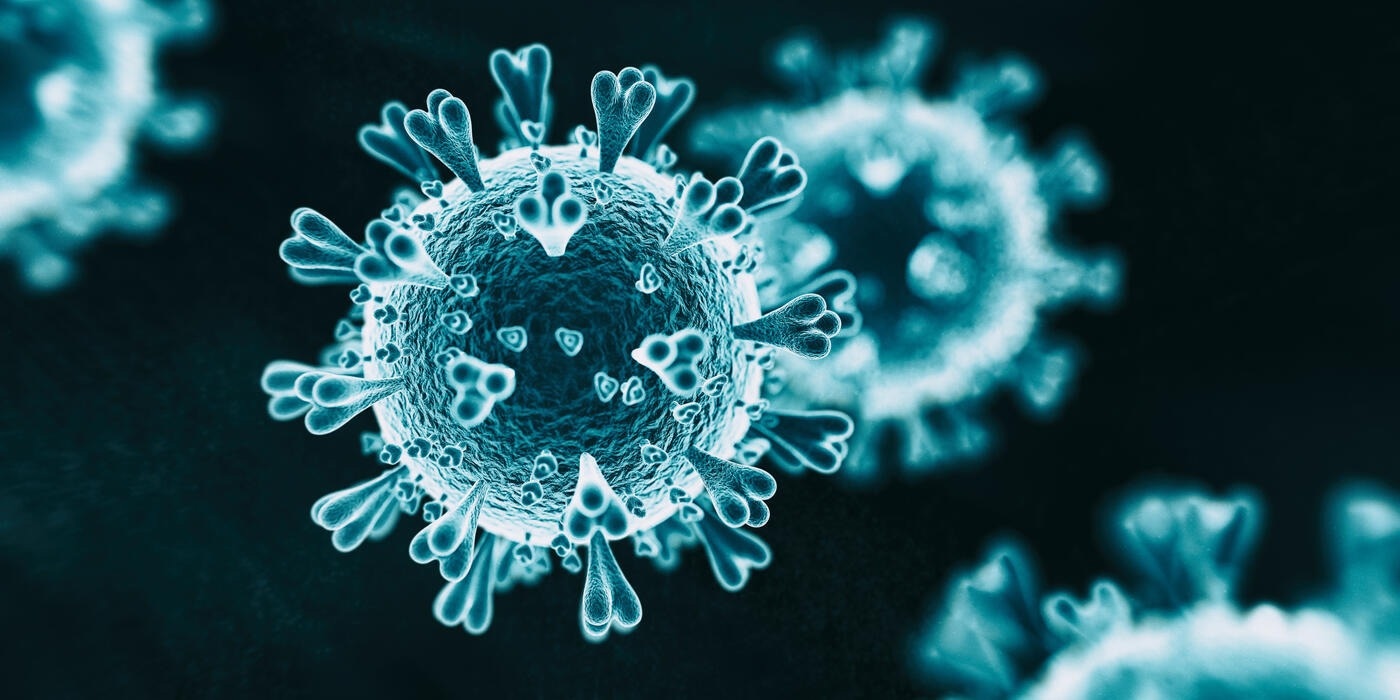A new COVID-19 antibody delivery approach has progressed to clinical trials, thanks to funding from the Defense Advanced Research Projects Agency (DARPA) and the Joint Program Executive Office for Chemical, Biological, Radiological, and Nuclear Defense (JPEO-CBRND).

Image Credit: The Wistar Institute
The Wistar Institute’s executive vice president, director of the Vaccine & Immunotherapy Center, and W.W. Smith Charitable Trust Professor in Cancer Research, David Weiner, PhD, directed the team, which included coworkers from the University of Pennsylvania, AstraZeneca, INOVIO Pharmaceuticals, and Indiana University.
This team received $37.6 million in funding to help accelerate pre-clinical advancement of DNA-encoded SARs-CoV-2 monoclonal antibodies (DMAbs) to avoid COVID-19. DMAbs use a person’s own cells as a factory to produce protective antibodies, easing the planning and implementation process for biologics and potentially expanding the global use of such new medicines.
The first dose of this novel investigational agent was administered in a first-in-human medical study guided by Pablo Tebas, MD, professor of Infectious Diseases at the University of Pennsylvania’s Perelman School of Medicine, and his team. The clinical trial will examine the overall efficacy and tolerability of this new approach to enabling the body to make multiple full-length monoclonal antibodies in people using sophisticated DNA technology.
This development is the culmination of the many steps taken working together with our DARPA/JPEO leadership team and members of the consortium advancing this product at this important time. We look forward to seeing the initial outcome from this first-in-human clinical trial studying this novel concept.”
David Weiner, PhD, Wistar Institute
He explains the objectives of the trials, clarifying “In addition to assessing safety and tolerability, we will also look for important insights into biological expression and activity in our trial subjects and if these can be shown to impact viral infection.”
Despite all of the progress made on COVID-19 treatments and management, this disease continues to kill three times more Americans than the flu. We need better methods to prevent complications of this disease particularly in immunocompromised patients. Our study will test a new way to deliver antibodies against COVID-19 that have been proven to decrease hospitalizations and deaths from this terrible disease.”
Pablo Tebas, MD, Professor, Infectious Diseases, Perelman School of Medicine, University of Pennsylvania
This work is made possible by a unique public-private partnership. To create this new tool to consider the susceptible needs of the patient, the group provides significant and diversified scientific and technological strengths together. Weiner and collaborators’ breakthroughs in the nucleic acid delivery space over the last few years have resulted in the advancements that underlie this program.
The study builds on a collaborative effort with AstraZeneca to reconstruct protein biologics into this groundbreaking DNA medicine approach, as well as innovative nucleic acid strategies developed by longtime collaborator Tebas and significant new tools for nucleic acid delivery designed in partnership with INOVIO.
Dosing the first patient with a COVID-19 DMAb candidate is the culmination of hard work from a collaborative public-private partnership. This trial provides an important opportunity to evaluate an innovative technology that could potentially transform how we deliver antibodies and protect against severe infections.”
Mark Esser, Vice President, Early Vaccines and Immune Therapies, AstraZeneca
The new approach makes use of antibody genetic blueprints encoded in DNA plasmids. DMAbs teach the body to organize functional antibodies and secrete them into the blood as properly grown specific monoclonal antibodies against pathogens like the SARS-CoV-2 virus after injection into the arm. This process prevents the need for immunization to create protective immunity.
Weiner says, “This project is an important example of team science and the value of working together to tackle difficult problems. The team’s mission was to advance and study a new way to deliver lifesaving therapies in a short time frame. We are hopeful that this clinical study will likely offer insight into the development of new therapeutic approaches for vulnerable patients.”
The joint research has clearly tested proof of SARS-CoV-2 protection in both research lab and animal model experiments, with the DMAbs demonstrating the possibility for both infection management and cure.
In concept, this nucleic acid medicine method has expected costs, specificity, production, storage, and delivery benefits over conventional monoclonal antibody therapeutic approaches, potentially increasing its accessibility to patients globally.
INOVIO Pharmaceuticals Chief scientific officer Laurent Humeau, PhD, says, “Advancing this human clinical study was made possible through the dedication of all parties involved in this consortium. We look forward to continuing to develop this promising monoclonal antibody delivery platform with our collaborators.”